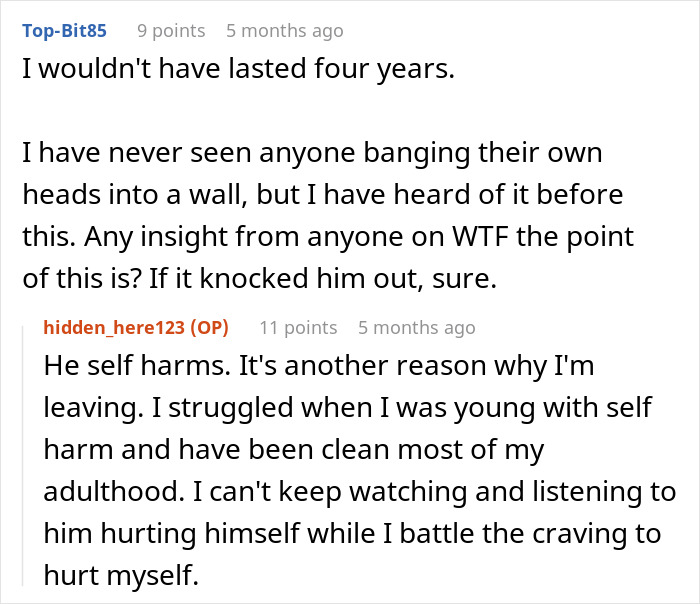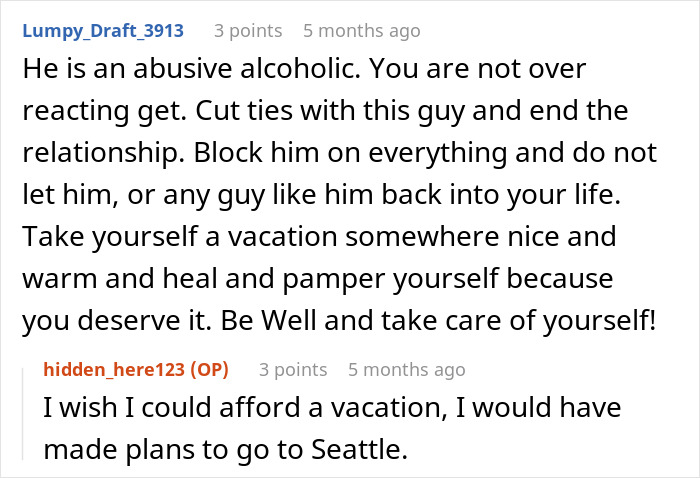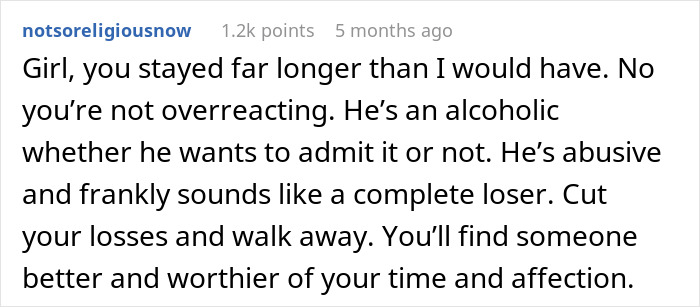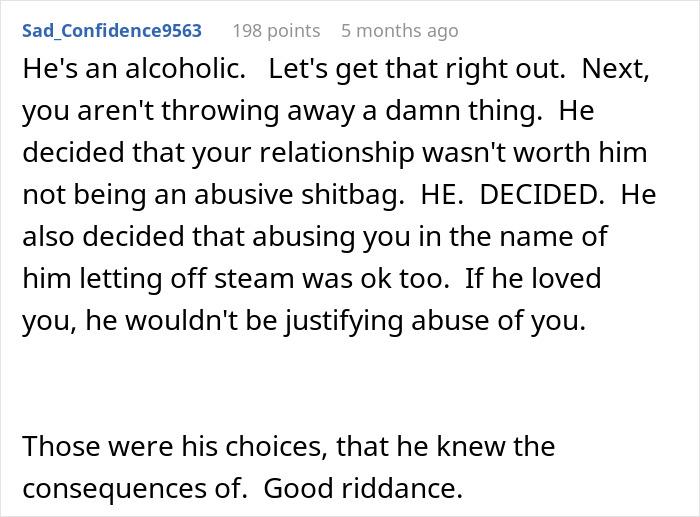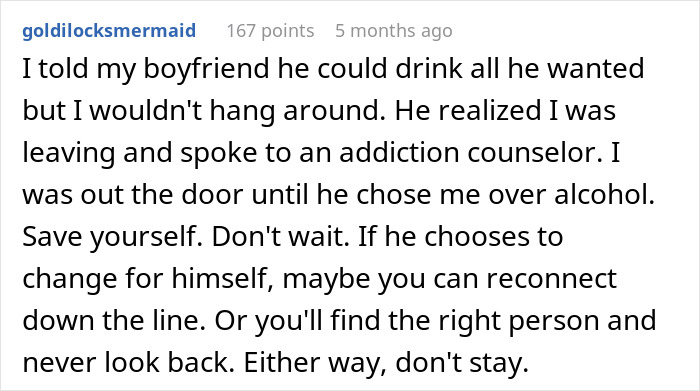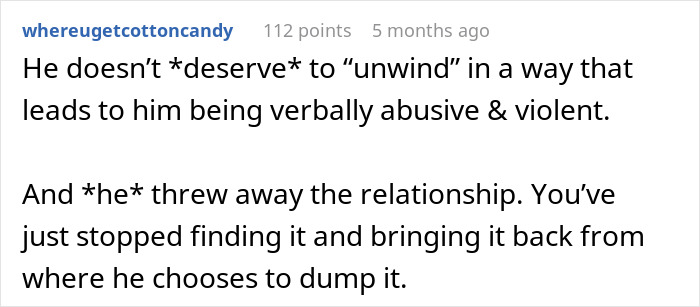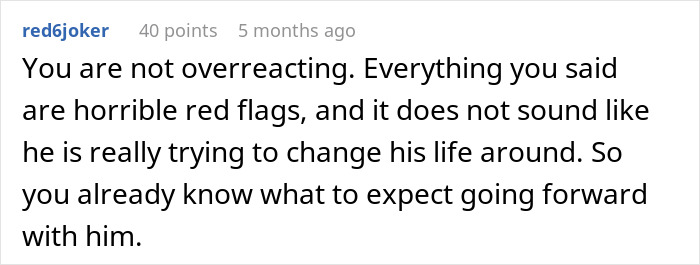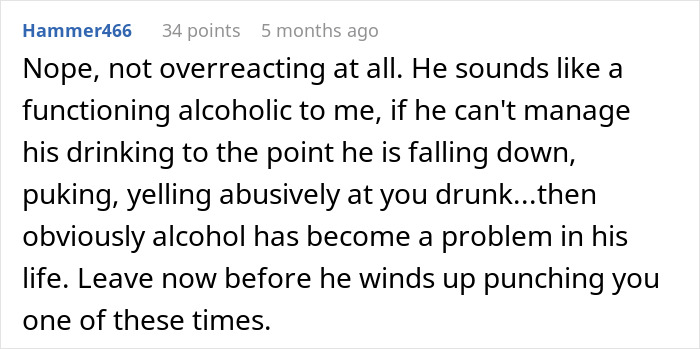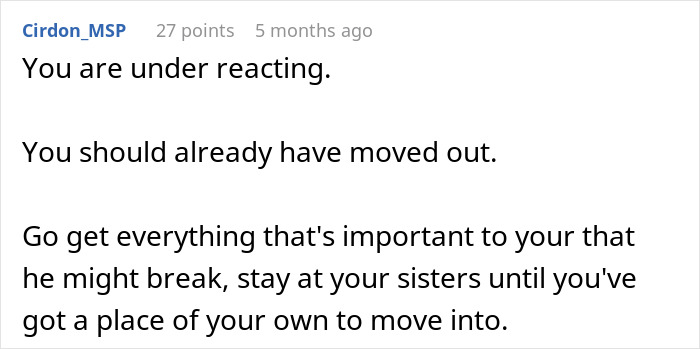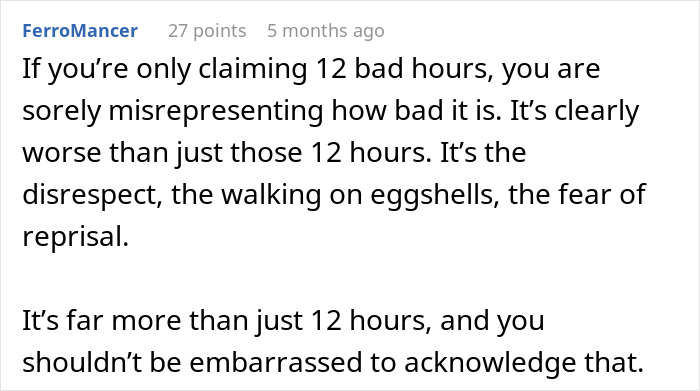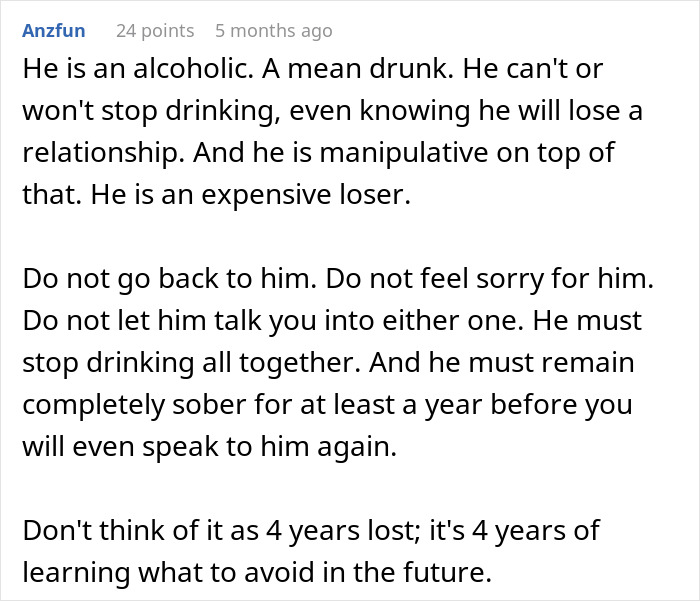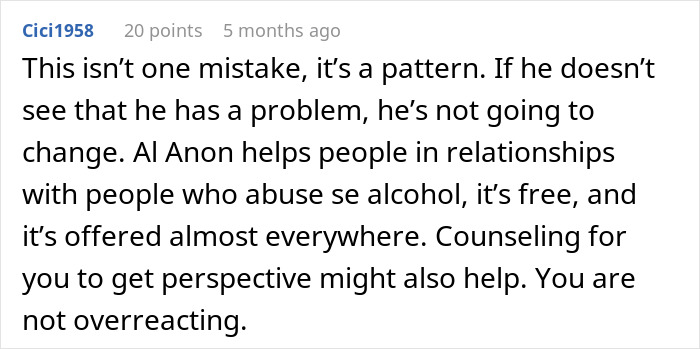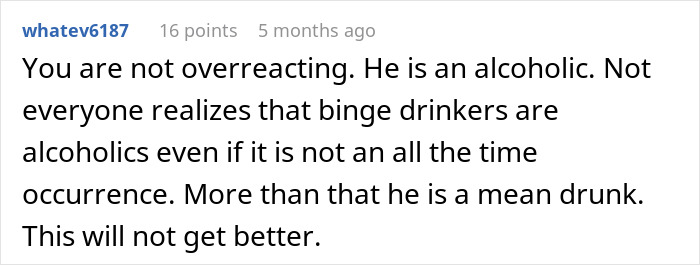There’s nothing wrong with enjoying a few drinks now and again. Millions of people do it around the world. But when alcohol gets in the way of your relationships, work or other aspects of daily life, it can cause major problems. Booze can cause people to act in ways they normally wouldn’t. And researchers have found a strong link between alcohol and aggression.
One woman says she suffered so much at the hands of her aggressive, binge-drinking boyfriend that “sorry” just didn’t cut it anymore. She’d been screamed at, seen him banging his head against the wall, and witnessed some other scary stuff. She eventually decided to break things off. But her boyfriend didn’t understand what the big deal was, and accused her of overreacting. The woman went online to share her story and ask for advice. Bored Panda reached out to a family counseling and addiction expert from the Hazelden Betty Ford Foundation for their take on the matter.
The woman said she’s had to deal with four drunken tantrums from her boyfriend over the past two and a half years

Image credits: LightFieldStudios (not the actual image)
She claims she got tired of his belligerent behavior, bottomless apologies and was done with being mistreated
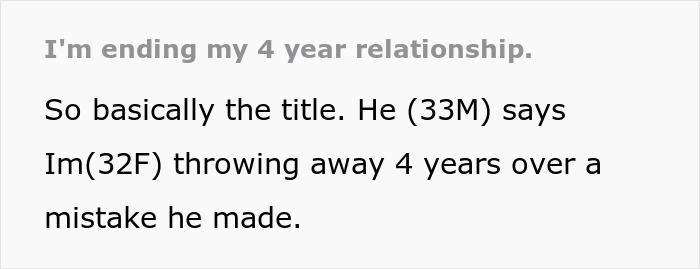
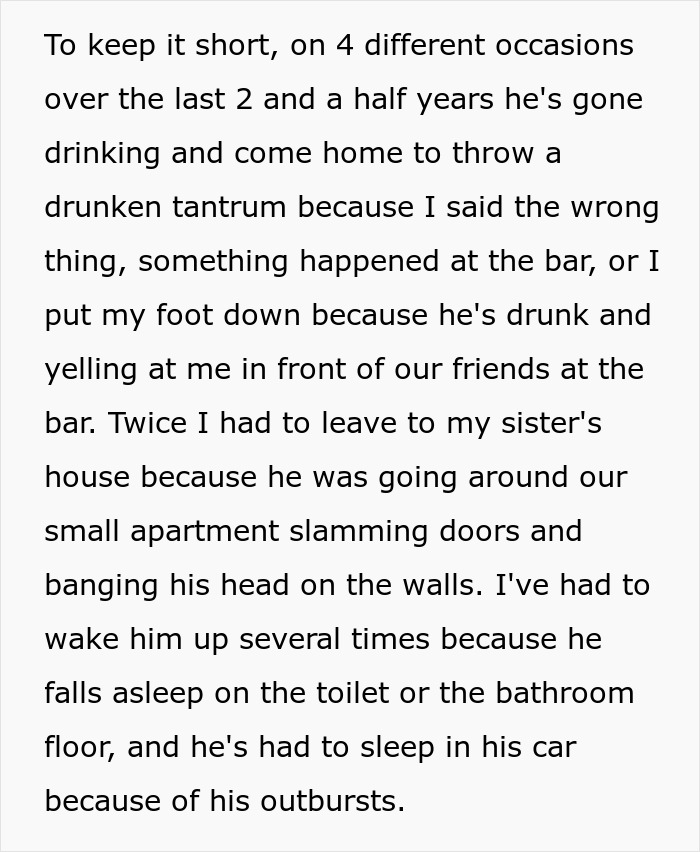
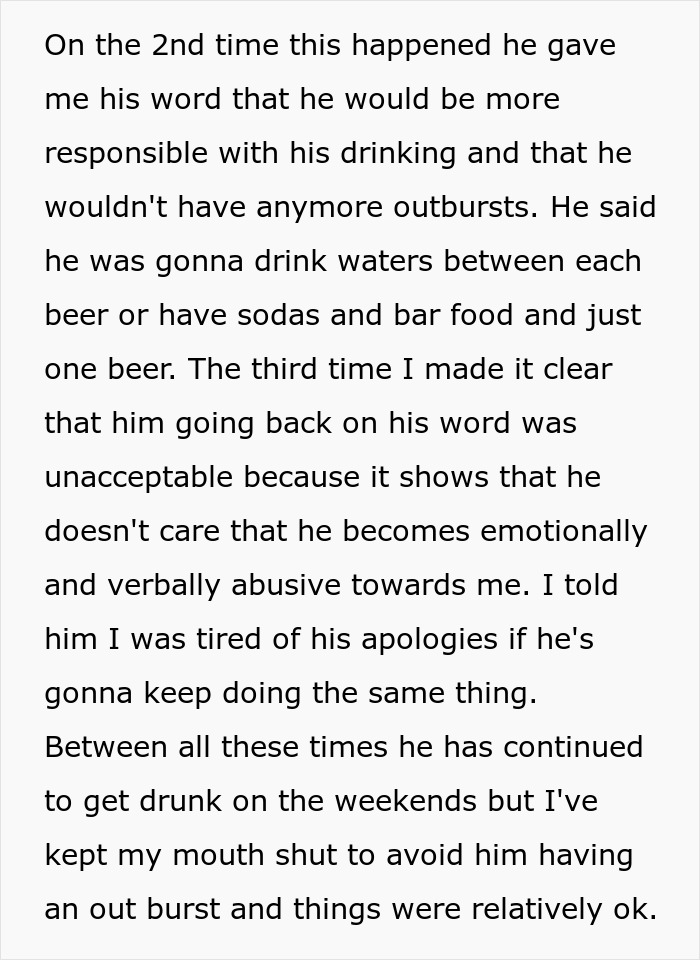

Image credits: Zinkevych_D (not the actual image)
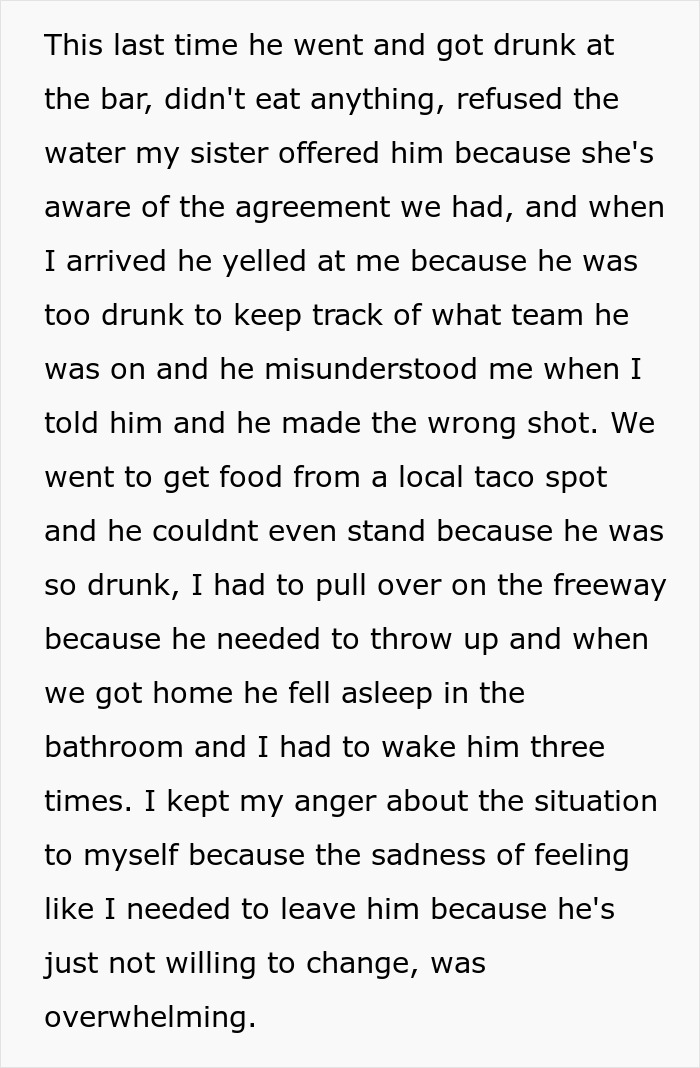
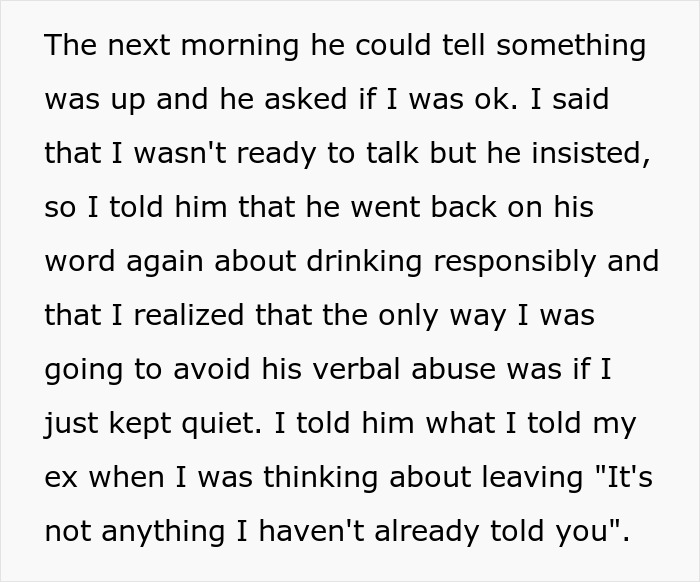
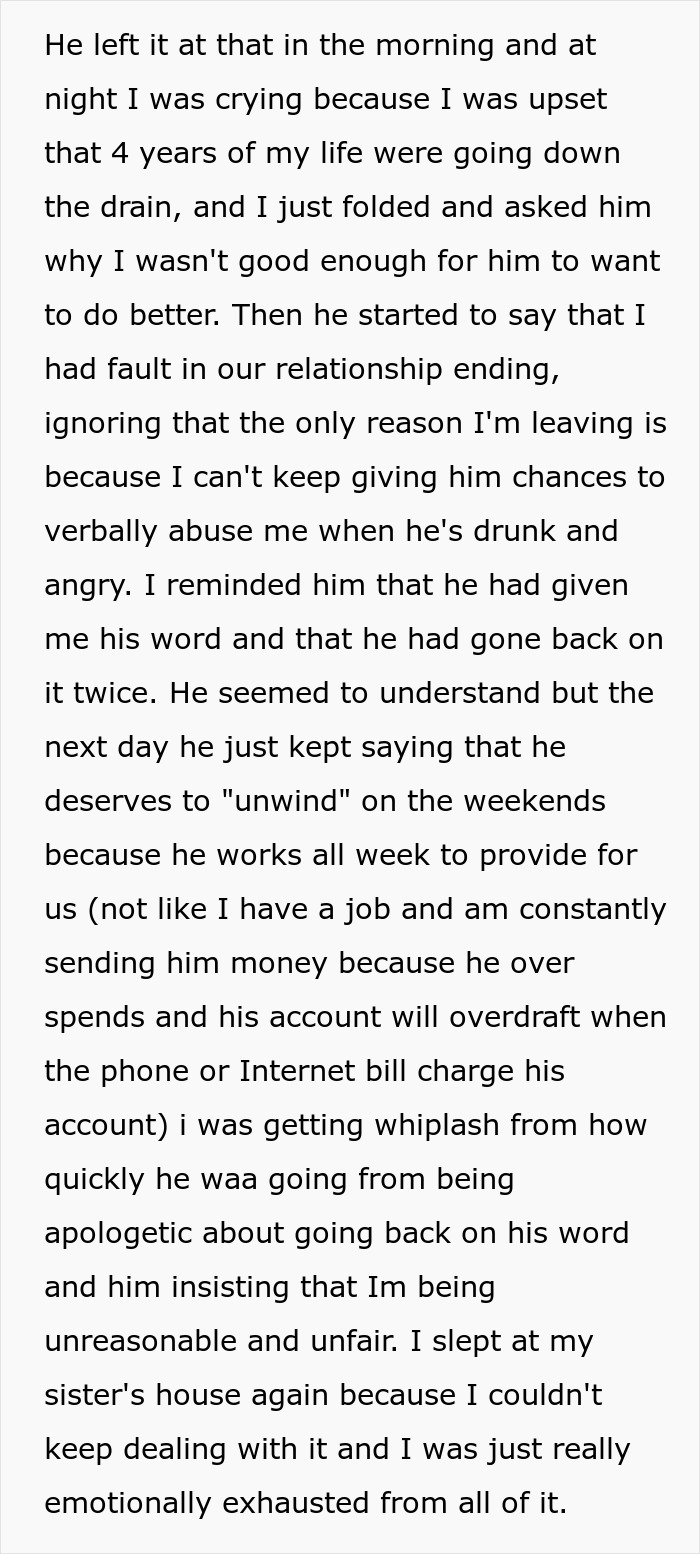

Image credits: LightFieldStudios (not the actual image)


Image credits: hidden_here123
The woman mentioned heavy weekend drinking, so it seems her boyfriend could be a binge drinker
Binge drinking is also known as heavy episodic drinking, and is basically drinking a lot of alcohol in a short amount of time. The National Institute on Alcohol Abuse and Alcoholism (NIAAA) defines binge drinking as “a pattern of drinking alcohol that brings blood alcohol concentration (BAC) to 0.08%—or 0.08 grams of alcohol per deciliter—or more.”
For most men it equals about five drinks, and for women it could be about four. But it depends on their weight and size. A 2023 National Survey on Drug Use and Health (NSDUH) found that more than 61 million Americans had done some sort of binge drinking in that month. Some of them were as young as 12 years old. “Binge drinking increases the likelihood of both becoming aggressive or angry and also being on the receiving end of someone else’s temper,” notes drinkaware on their site.
Jessica Garrison is the Family Services Supervisor for Hazelden Betty Ford Foundation. It’s an NPO specializing in addiction treatment and mental healthcare. “Get help and support immediately for yourself from a professional, ideally someone who specializes in understanding addiction and mental health concerns,” Garrison told Bored Panda. “This professional can offer evidence-based skills and provide insights regarding the impact, and how the person can build up their own skills to manage stress.”

Image credits: Anete Lusina (not the actual image)
The OP said the relationship became toxic because of her partner’s drinking
It’s a common complaint from people who have partners that binge drink. As drinkaware reports, “Studies also show that there is a clear link between alcohol use and intimate partner violence – which is any form of physical, sexual or psychological violence against a current or former partner.”
The stats show that women are at greater risk of being harmed than men. While the OP didn’t specify physical violence, she was very clear that she felt emotionally and verbally abused. She also noted in the comments that her partner’s behavior was bad for her own mental health.
Garrsion told Bored Panda there’s no clearcut answer on when it’s time to leave the relationship. “But utilizing professional help will ensure that a person has the support they need regarding when and how to leave, and that they maintain their own safety and health above all else,” she said. “By seeking professional help individually first, you can clarify boundaries, maintain your own safety and emotional health, and develop a plan for addressing the issues.”

Image credits: Alex Green (not the actual image)
Experts say its best not to confront someone about their drinking while they are drunk
Clearbrook Treatment Center is an alcohol rehab facility in Pennsylvania. They’ve helped loads of people get their lives back on track. Their advice is to wait until your partner is sober before confronting them about their problem. Otherwise the person possibly won’t comprehend or remember the conversation.
“One of the worst mistakes you can make when learning how to get your partner to stop drinking is confronting them when they’re intoxicated. Do not attempt to talk to them about their drinking patterns when they’re drunk or in the middle of a binge,” reads the Clearbrook site.

Image credits: rebcenter moscow (not the actual image)
The woman said she’d confronted her partner on several occasions, but sometimes kept quiet to keep the peace
The center advises people to think about what they want to say to their partners, so that there can be a positive impact. And to jot down some notes before having the conversation. Include examples of when and how their drinking has affected the relationship. “Not only will your notes act as a guide when you hit a mental block, but they’ll also prevent you from going off on an angry tangent that could potentially escalate the situation.” They also suggest getting support from friends, family, therapists or a treatment center.
The Recovery Village has rehab centers across America. It notes there are quite a few symptoms that signal someone has a problem with alcohol. Some include “spending a significant amount of time drinking, continuing to drink even when it interferes with relationships, and showing signs of alcohol tolerance and withdrawal”.
They advise that it’s probably best to leave a partner if “you’re stuck in an unhealthy relationship full of lies, arguments or abuse”. And adds that this is especially true if you’ve offered your partner support but they continue to deny there’s a problem.

Image credits: RDNE Stock project (not the actual image)
Netizens agreed the woman had done the right thing by leaving, with some saying they wouldn’t have lasted four years
